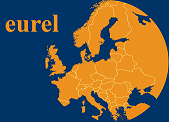This paper studies how the members of the European Parliament (MEPs) vote on morality issues, i.e. issues that are framed in terms of (religious) values. The objective is to analyze the extent to which morality politics challenges the literature on party discipline and party loyalty. Internal cohesion and party leadership may indeed weaken when politicians are confronted to religion and values. The question is becoming more and more relevant in the light of the growing politicization of morality issues at the European Union (EU) level. For example, in recent years, MEPs have been debating the bioethical issues of abortion and human embryonic stem cell research (hESCR). The former is tackled through parliamentary reports on sexual and reproductive health and rights (SRHR); the latter is dealt with through the successive European research framework programs. The question arises: “How does religion influence MEPs' vote on abortion and hESCR?” The paper analyzes four pieces of legislation: two parliamentary reports on SRHR (Van Lancker report– 2002 – and Estrela report – 2013), as well as two research framework programs (FP5 – 1998 – and FP7 – 2007). These study cases enable us to control both the topic and the time variables. The methodological approach relies on a qualitative discourse analysis of semi-structured interviews conducted with twenty MEPs. The results show that even though party discipline remains an important factor influencing MEPs' vote, religion appears to be a driving force when it comes to morality politics. In other words, secularizing trends which dominate the European landscape have not diminished the political salience of individuals' religious convictions.
- Other

 PDF version
PDF version
